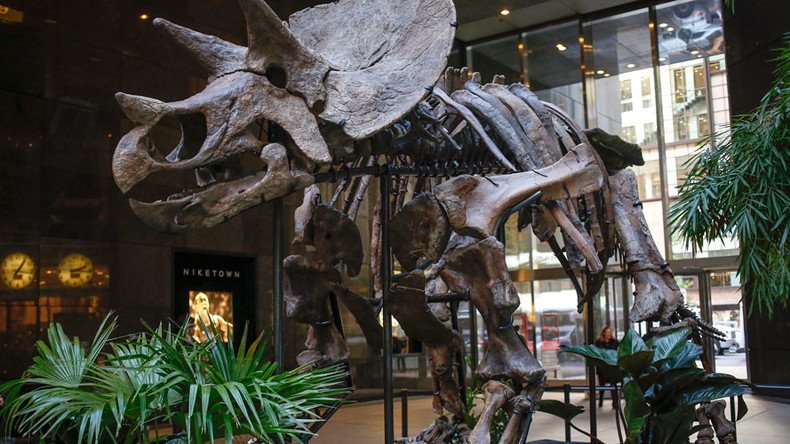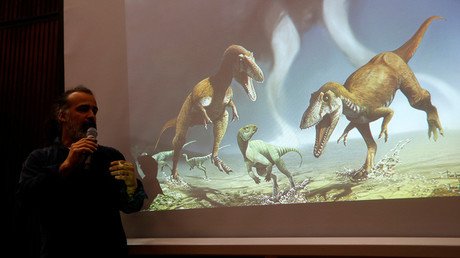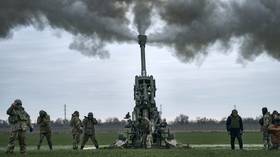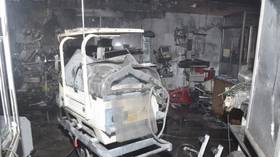Dinosaurs wiped out when asteroid struck oil, claims study

Flaming fossil fuels may have brought about dinosaurs’ demise, according to a new study which claims the asteroid which hit Earth 66 million years ago struck an oil field filling the planet's atmosphere with soot.
The research published in Scientific Reports was carried out by a team from Tohoku University in Japan. The paper bases its evidence on soot found around the world which the researchers say originated from the combustion of crude oil when the asteroid struck.
The new theory casts doubt on the commonly-held theory that the asteroid impact was solely responsible for the mass extinction.
“Our results show that the stratospheric aerosols did not induce darkness, in contrast to previous assumptions,” the study says. Previous theories on the extinction of dinosaurs say that the earth was plunged into a period of total darkness following the tremendously powerful impact from space. However, this fails to explain why animals such crocodiles were able to survive the catastrophic event.
Under the new hypothesis, the soot generated from the asteroid-ignited oilfields caused a significant reduction in sunlight of between 50 to 90 percent, but still allowed limited photosynthesis.
Temperatures plunged and areas further away from the equator were worst affected, experiencing drops of up to 18 degrees Celsius (+64 Fahrenheit), while rainfall levels are believed to have dropped by as much as 80 percent.
The plummeting temperatures are credited with causing the extinction of both dinosaurs and crocodiles in the colder regions. Closer to the equator, though, the cooling would have been less dramatic. Dinosaurs died due to drought but crocodiles survived on a diet of aquatic animals which had lived on despite the sudden environmental changes.
Chicxulub in Mexico - the third largest known impact crater on earth - is believed to be the site the asteroid struck with the force of 1 billion nuclear bombs, causing a crater more than 180km wide.
It would have taken a decade for light to return to normal and a further couple of years before temperatures heated up, by which time most dinosaurs would have died.













